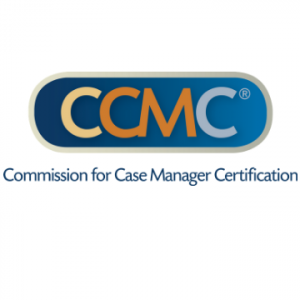Posted on 05/03/2021 - 3:59 PM by CCMC
This case management specialty can be challenging but rewarding
Any number of things draw case managers to their field. For Nina Mottern, RN, BN, CCM, her case management career gravitated toward geriatric care management when she realized she needed a nursing job that aligned with her family life.
“When you have young children, you gravitate to employment that will work around a family schedule,” Mottern said. “Oftentimes, that seemed to involve a geriatric setting.” Eventually, Mottern discovered that the specialty was a good fit, recognizing just how much support and advocacy her patients needed.
“The many hoops and barrels older people had to navigate were more challenging than I had imagined,” said Mottern. That realization turned into a decades-long career in geriatric care management.
Challenges for Geriatric Care Management
One major challenge that Mottern and other geriatric care managers face is transition of care. These discussions with clients and/or caregivers can be frightening and overwhelming for them.
For example, palliative care referrals can be a minefield of emotions for clients and caregivers. When someone hears palliative care, they think of hospice care, often incorrectly assuming that their loved one is at the end of life. In truth, palliative care can support a client and/or their caregivers for years, providing all parties the guidance and oversight they need to navigate their continuum of care.
In all situations, Mottern stresses timely and accurate communication. “I find that it's been extremely important to know when to provide new information for support as the journey evolves. Knowing when it's time to change care, knowing when it's time to introduce another support system means the difference between proactivity and reactivity. However, oftentimes as a geriatric case manager, there is not a lot of warning,” Mottern said.
In addition to navigating emotionally charged conversations and educating clients and their families, geriatric care managers must be aware that a one-size-fits-all approach to providing resources may, in some cases, not be helpful. Or, conversely, the plan the care manager develops may not actually align with the caregiver’s or client’s goals.
To illustrate her point, Mottern tells a story about how she had developed a “grand plan” for a caregiver and supplied them with all the resources and information they would need. However, the caregiver only wanted to be able to go out to lunch with their friends once a month, so only required care for the client during that time, rendering the “grand plan” superfluous for the client and caregiver.
“I've learned early on that you can have all of the knowledge, but you really have to listen,” Mottern said. “That was an eye opener for me. I had all this information and all these ideas, but that was all she wanted—to be able to go out to lunch once a month—at that point in time. That just meant the world to her.”
A Focus on the Caregiver
Mottern describes geriatric care management as an onion—the more you peel, the more layers you will expose.
“Upon closer inspection, not only does the patient need support, but the caregiver needs support of their own,” said Mottern.
In addition to identifying and coordinating resources for a client, geriatric care managers often coordinate resources for caregivers in need of both emotional and physical support. While some organizations, like Veterans Affairs (VA), have limited resources for caregivers, uncovering resources available to clients and their families can be a significant undertaking.
“The best way geriatric care managers can serve clients and/or caregivers is to be diligent in their awareness of resources in their community, as well as those out of area,” Mottern said. Understanding options outside of your local area may be critical for helping clients relocate closer to family and other caretakers who can support them.
If Geriatric Care Management is For You
Case managers work every day to ensure continuity of care for their clients, and those who’ve chosen to work in a specialty like geriatric care management provide resources, education, and understanding for both clients and caregivers. Geriatric care management has its own unique challenges, like developing customized responses for caregivers who may not share your same vision for the client’s needs or helping clients and their families through very emotional life changes. However, as in all situations, the care manager’s experience and knowledge, along with the trust of the client, will most often lead to successful outcomes for all involved. Geriatric care management is in high demand and will remain a challenging but rewarding option to be explored.

